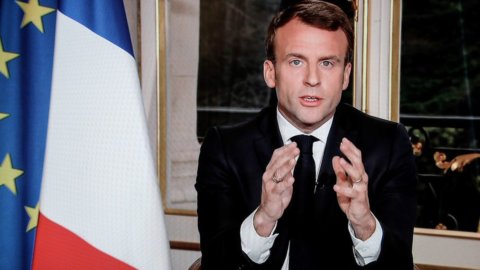In some countries, and in some cities, Covid is not an excuse for not thinking about the future. The emergency forces us to deal with today, but looking to tomorrow also remains important. Without denying the environmental commitments made during the electoral campaign. Who knows what the Parisians will think when, in the next few days, they will be called to express themselves, through a strictly online consultation, not on the use of the mask or on the economic aid to be received for the loss of a job or the closure of the business, but on what to do with the sections of roadway occupied by cars today, but no longer tomorrow. It's the big one green project, in some ways revolutionary, by the socialist mayor Anne Hidalgo, just re-elected with such a broad consensus that many would see it well at the Elysée, when the mandate of the highly contested Emmanuel Macron ends.
But she has already declined the proposal, she still sees herself as mayor of Paris. And what a mayor. In the face of Covid, Hidalgo (who was re-elected also thanks to the alliance with the Greens) is sticking to his green project which aims to make the French capital the "city of the quarter of an hour", a model for the development of the mobility network sweet and strengthening of local public services which is already a trend in half of Europe (it is also being talked about in Milan). The ecological revolution also includes more greenery, more bicycles and scooters (the aim is to reach 50 km of cycle paths) and a series of measures that motorists will certainly not like: speed limit at 30 km per hour throughout the city (except of course on the main roads) and 70.000 fewer cars parked on the surface, eliminating half of the current parking spaces on the streets and squares of the Ville Lumiere.
The idea is that of a slow city with an effect – also visual – that is less “junkyard”: this will free up around 700.000 square meters of space on the streets, to be allocated to a more sustainable use. What use, citizens will decide. The same citizens who by now, as recalled by the city councilor for mobility David Belliard, only 30% own a car (2007% in 41): 3 out of 10 residents, "and 75% use it only during the weekend". To vote, just go to the Paris City Council website (this is the link): it is a question of freely expressing one's opinion on how to "reinvest" the space freed up and returned to the city, perhaps to add cycle paths, pedestrian zones, trees or gardens, bus stops, car-sharing parking lots or why not to grant more ground for the managers of bars and restaurants, allowing for the respect of the distance between the tables.
The results of the consultation will be announced in 2021, but in the meantime the Municipality website provides some useful data, to get an idea: cars that remain parked for the whole week take up space for 250 km of roads, equal to the distance between Paris and Lille; throughout the city there are 4.400 parking spaces reserved for the disabled, 50% more than required by law; of the entire Parisian road network (1.700 km) only 38% is lined with trees. This latter data could certainly be improved, even if the questionnaire does not exclude less green but equally important uses from a practical point of view, such as for example the increase of fast rest areas, to facilitate the work of home deliveries, this is also an activity that exploded in times of Covid. In the lot of hypotheses there is no shortage of solidarity initiatives such as the "social refrigerators", or cultural ones such as the "boites-à-livres", the mini libraries for exchanging books for free. But also, most importantly, the increase in charging stations for electric cars, which in Paris today are 2.162.
And all those who still have a car and would still like to use it and park comfortably? Hidalgo also thought about this, recalling that in Paris there are 621.600 underground parking spaces (almost five times as many as on the surface), most of which are underutilized. Probably due to the cost, but now the Municipality is aiming to control prices, establishing a tariff accessible to all with the managers: "After all, it is also convenient for them - they let the Hotel de Ville know -: our policy will contribute to increase the occupancy rate of private car parks“. Ultimately, it is a question of putting an end to an anomaly: in Paris, 50% of public land is destined for cars, which now represent 13% of flows. By now the car is not even needed for shopping: 79% do it on foot, 4% use public transport, 3% by scooter or bicycle, 14% by car. A vehicle decidedly from another century.





